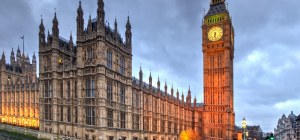A safety net below the cliff edge?

Aaron Nelson Legal Director
This article was first published by New Law Journal.
Peers recently voted in favour of an amendment to the Government’s flagship piece of Brexit legislation, the EU (Withdrawal) Bill, which would require the Government to obtain Parliament’s approval of the withdrawal deal and would enable Parliament, if it does not approve of the deal, to instruct the Government to re-open the negotiations.
Amendment 49
The amendment, moved by Viscount Hailsham (former Conservative Minister Douglas Hogg), builds on the sole defeat which the Government suffered in the Commons. A Conservative backbench rebellion there, led by Conservative MP and former Attorney General Dominic Grieve QC, saw the Bill modified to require primary legislation to be enacted approving the terms of the withdrawal agreement.
Viscount Hailsham’s amendment goes further:
- first, it requires the Government, before concluding the withdrawal agreement, to obtain Commons’ approval of it (and any transitional arrangements), and for the matter to have been considered by the Lords. So far as practicable, this is to take place before the European Parliament has itself debated and voted on the draft withdrawal agreement;
- second, the Government cannot implement the withdrawal agreement unless Parliament has approved it (and any transitional measures) by an Act of Parliament; and
- third, if Commons’ approval isn’t given by 30 November 2018, or the Act has not received Royal Assent by 31 January 2019, or no withdrawal agreement has been reached by 28 February 2019, the Government is to follow any direction on the negotiations approved the Commons and considered by the Lords. That could include a direction to reopen the negotiations.
The amendment’s supporters claim that the risk of a damaging ‘no deal’ Brexit is now reduced because, should the Government fail to secure a deal at all, Parliament would send the Government back to the negotiating table. The amendment provides a ‘safety net’ just below the cliff edge.
Reversing its effect
But the Government will almost certainly seek to reverse the effect of Amendment 49 when the Bill returns to the Commons.
Government whips will remind MPs that it has already promised Parliament a ‘meaningful vote’ on the withdrawal agreement, and an EU (Withdrawal Agreement and Implementation) Bill to give effect to that agreement – so the first two parts of the amendment are unnecessary. They will also likely argue that the negotiations are a matter for the Government, and would be fundamentally undermined if Parliament had a veto over the deal struck – so the third part is unwise. If a defeat in the Commons looked likely, the Government could try to water down the effect of the amendment, by seeking to limit the powers available to Parliament to give it directions.
Some Brexiteers may argue that the amendment should be defeated as it gives the (unelected) Lords a means to ‘stop Brexit’, by opposing the motion for consideration, by filibustering any approval Bill or (ultimately) directing the Government to negotiate to extend membership under Article 50. But it would be unconstitutional for the Lords to use its limited role under the amendment to oppose, directly, the will of the democratically-elected Commons.
The specific difficulty for the Government, in terms of overturning the amendment itself, is that there may be enough soft Brexit/Remain Tory MPs willing to rebel now, in good conscience, in order to enshrine in law that Parliament gets a conclusive say on the final deal, safe in the knowledge that they can always support the Government by voting for the deal when required to do so. That latter vote is likely to amount to a vote of confidence, at least in the Government’s handling of the negotiations and approach to Brexit and, potentially, on the Government itself – making a backbench rebellion on that vote much less likely.
Part of a coherent strategy?
Of course, these considerations will not play out in isolation: Viscount Hailsham’s amendment was only one of fourteen defeats the Government suffered in the Lords at Report stage (with a fifteenth at Third reading).
Peers also backed amendments designed to make MPs reconsider membership of the Customs Union and the European Economic Area (EEA). Considered together, this amounts to a coherent strategy to test the level of support in the Commons for the Government’s overall approach to Brexit (which the Prime Minister has summarised as ‘taking back control of our borders, laws and money’), as against the other ‘off the shelf’ options.
What will the result be? It is generally considered that there is no outright majority in the Commons for the ‘hard’ Brexit favoured by the Government, with MPs (on both sides of the House) willing to implement the referendum instruction to ‘Leave’ but concerned about the potential economic and social impacts of doing so. But there doesn’t seem to be a Commons majority in favour of EEA membership, seen as ‘the worst of both worlds’, either. Continued membership of the Customs Union, on the other hand, looks too close to call – particularly given public Cabinet divisions on the Government’s preferred customs approach and the need to solve the Irish border issue. Recent reports suggest the Government may even seek to maintain existing customs arrangements beyond the transition period, to allow more time for its preferred permanent solutions (a ‘new customs partnership’ or ‘max fac’) to be developed.
It is not clear when the Bill will return to the Commons. The Government may seek to reverse the Lords’ amendments at the earliest opportunity (before the next EU summit on 28 and 29 June) or it may delay until the autumn.









